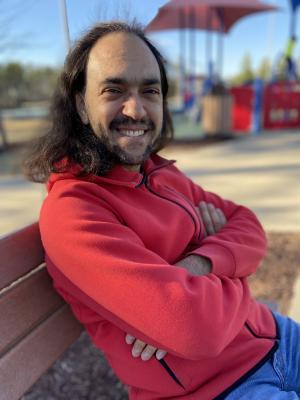Yitzhak Lewis, assistant professor of humanities at Duke Kunshan University, delivered a lecture titled Reading Globally: Redrawing the Map of Jewish Modernism in Rubenstein Library, Duke University, as a part of the Mapping Jewish Modernism exhibit, which showcased Jewish cultural and intellectual exchanges worldwide, from Feb. 9 to Aug. 10.

In his lecture, Lewis spotlighted the global dimensions of Jewish modernism, discussing figures like Jorge Luis Borges and Mao Dun. Borges’ literary engagement with Jewish traditions, Lewis explained, revealed both admiration for classical Jewish texts and ambivalence toward modern Jewish literature. Meanwhile, Mao Dun found inspiration in Yiddish literature’s role in cultural revival, seeing parallels with China’s national awakening through literature’s unifying power.
“Jewish modernism isn’t restricted to any one place or culture; it’s a dynamic dialogue that reaches across boundaries. This exhibit helps us see how Jewish traditions and ideas have helped shape modernism on a global scale, through encounters that redefine identity and belonging,” said Lewis, an expert in Jewish studies and world literature. His lecture explored how Jewish texts and cultural practices resonate across languages and ideologies, reshaping modernist thought in diverse contexts.
Curated by Duke and UNC students from a course led by professors Kata Gellen and Saskia Ziolkowski, the exhibit features artifacts from the Rubenstein Library’s rare book collections. Highlights include works by Franz Kafka, Philip Roth, and Allen Ginsberg, alongside documents from Ethiopian Jewish villages and the Soviet Jewish Autonomous Region of Birobidzhan.

